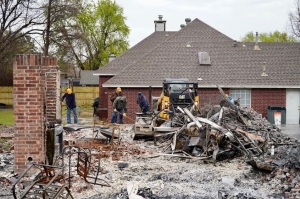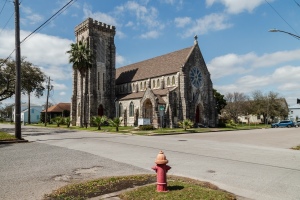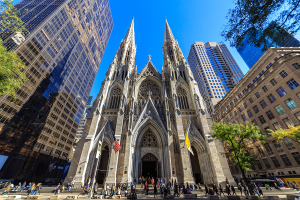Catholic Bishops Call for Minimum Wage Increase on 50th Anniversary of 'War on Poverty'
The U.S. Conference of Catholic Bishops and Catholic Charities USA called on the Senate to tackle economic inequality and raise the minimum wage on the 50th anniversary of the "war on poverty," an initiative introduced by former President Lyndon B. Johnson.
In a joint letter to the Senate on Wednesday, Archbishop Thomas G. Wenski, chairman of the Committee on Domestic Justice and Human Development, and Father Larry Snyder, president of Catholic Charities USA, wrote: "We urge you to consider closely any legislation that begins to heal our broken economy by promoting decent work and ensuring fair and just compensation for all workers.
"We write not as economists or labor market experts, but rather as pastors and teachers who every day, in our ministries and churches, see the pain and struggles caused by an economy that simply does not produce enough jobs with just wages."
They added that the bishops see families struggling to afford basic needs, and reminded the Senate that Pope John Paul II once described human work as "probably the essential key, to the whole social question," a statement that has been echoed by Pope Francis as well.
The bishops insisted that the federal minimum wage in America, at $7.25 per hour, is too low to provide for individuals to form and support families.
"A full-year, full-time worker making the minimum wage does not make enough money to raise a child free from poverty," they wrote. "Because the minimum wage is a static number and does not change, each year it becomes more difficult for workers making the minimum wage to survive."
Former President Johnson announced a war on poverty during his first State of the Union address on Jan. 8, 1964.
"We shall not rest until that war is won," Johnson said. "The richest nation on Earth can afford to win it. We cannot afford to lose it."
Delivering his own statement on the "war on poverty" anniversary, President Barack Obama looked back on the progress made in the last few decades, and pointed to Social Security and Medicare as successful programs that have helped a lot of people.
The president added that America's work is "far from over."
"In the richest nation on Earth, far too many children are still born into poverty, far too few have a fair shot to escape it, and Americans of all races and backgrounds experience wages and incomes that aren't rising, making it harder to share in the opportunities a growing economy provides," Obama said, and promised that as the U.S. economy continues to grow stronger, the recovery will leave no one behind.
Former GOP vice presidential candidate Paul Ryan suggested on Thursday, however, that the "war on poverty" has failed, and said that people need to get more involved in their local communities if they want to see a real change.
"We've got to get our communities engaged," Ryan said in an interview with NBC. As a Roman Catholic, he added that suburban churches need to get more involved with urban ones.
"People think it's being handled by government. 'I pay my taxes …' People need to get involved in their own communities," he said, adding that the government needs to "remove the barriers that allow that to happen."





























